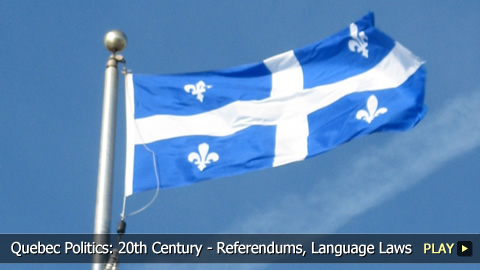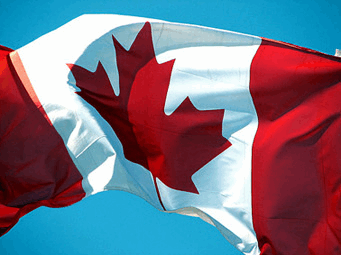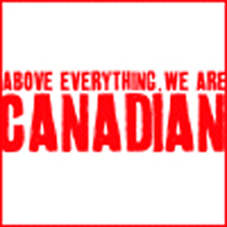Well, good evening ladies and gentlemen. My name is Jim Carrey ↑ and how are you this evening? Alrightly then. I grew up in Canada… Is there anybody here from Canada? Now I used to get really upset when I told people where I came from down in Los Angeles, because I always got the same response: «CANADA! Wow! Must have been cold!»
Now I just go along with them: «Yes, Ca-na-da, it was a frozen hostile wasteland, and there was much to be done if we were to survive the elements. After boring a hole through the ice, we find food; my good friend […?] and I, we’re building an igloo to protect ourselves from polar bears and flying hockey pucks. Then we were drink a lot of beer, then when […?] was ready, he were tell me the story of the great moose who said to the little squirrel: «Hey rocky, you watch me pull a rabbit out of my hat…»
•→Speak like a Canadian with Ronnie⇐ / ⇓ slang . . .
⇐ The history of Canada in 10 minutes
Find the odd one out ↓
♦ Shania Twain ⇓ ‘Don’t Be Stupid (You Know I Love You)’
You’re so complicated – you hang over my shoulder when I read my mail I don’t appreciate it when I talk to other guys, you think they’re on my tail I get so aggravated when I get off the phone and I get the third degree I’m really feelin’ frustrated – Why don’t you take a pill and put a little trust in me And you’ll see – Don’t freak out until you know the facts – Relax Don’t be stupid-you know I love you Don’t be ridiculous-you know I need you Don’t be absurd-you know I want you Don’t be impossible I’m mad about you (I’m mad about you) Can’t live without you (can’t live without you) I’m crazy ‘bout you (I’m crazy ‘bout you) So don’t be stupid – you know I love you Stop overreacting – You even get suspicious when I paint my nails It’s definitely distracting the way you dramatize every little small detail Don’t freak out until you know the facts – Relax-Max Don’t be stupid-you know I love you Don’t be ridiculous – you know I need you Don’t be absurd-you know I want you Don’t be impossible I’m mad about you . . .÷ ÷ ÷
•→ Mountains in Motion: The Canadian Rockies ⇐
÷ ÷ ÷
¤ Quebec Politics: 20th Century ⇓ Referendums, Language Laws

After centuries as New France, Quebec became a British colony following a bloody battle at the Plains of Abraham. In 1867, it was one of Canada’s four founding provinces, and eventually French culture, language and religious freedom were protected by law, forming a distinct populace within the country.
• Maurice Duplessis and “La Grande Noirceur”
However, years of French nationalism came to a head in the twentieth century. In 1936, Maurice Duplessis’ right-wing Union Nationale party took power, and promoted tradition and family values; however, critics labeled the period “La Grande Noirceur,” or the Great Darkness, due to limits on education, technology and industry, as well as the power of the Roman Catholic Church.
• Asbestos Strike
Because of Duplessis’ policies, Quebec’s French population was primarily working-class, while the capitalist class was predominantly Anglophone. 1949’s Asbestos Strike exemplified this, as French miners were striking for better conditions against English companies. Many saw this event as the dawn of a new modern Quebec.
• Richard Riot
Another turning point came in March 1955 when Montreal Canadiens star Maurice Richard was suspended after hitting a linesman. Because Richard was French Canadian, and the NHL was Anglophone-run, the francophone public saw this as a language issue. The resulting riot in Montreal was one of the first instances the French population fought back.
• Quiet Revolution
In 1959, both Duplessis and his successor died, so Jean Lesage’s Liberals took power. Soon, the Quiet Revolution began: during that period, the province was modernized, the power of the Church was reduced, the financial standing of French Quebecers was improved and their identity as a unique culture was solidified.
• Other Modernizations
New government organizations were created, as well, which served to finance these modernizations: the Caisse de dépôt et placement du Québec was established to manage the public pension plan, and the government-owned Hydro-Québec took over the province’s hydroelectricity from private companies.
• A Movement for Quebec Independence
The Revolution ended in 1966 when l’Union Nationale regained power, but the changes continued. Soon, a movement in favor of Quebec independence surfaced, and was encouraged by a 1967 visit from French President Charles de Gaulle.
• Parti Québécois
The next year, Quebecer Pierre Elliott Trudeau was elected Prime Minister of Canada as a Liberal. He fought for Canadian unity, and ensured the protection of linguistic minorities. Around the same time, René Lévesque founded the left-leaning Parti Québécois, with the primary focus of achieving a sovereign Quebec.
• FLQ
However, a paramilitary group in favor of Quebec independence also surfaced in the late-‘60s. The “Front de libération du Québec,” or FLQ, was seen by many as terrorists. Their violent actions peaked during 1970’s October Crisis when they kidnapped two prominent Quebec politicians, and murdered one. Trudeau’s government was widely supported for its use of extreme measures in stopping the FLQ.
• October Crisis
The October Crisis galvanized the belief that Quebec independence would be achieved through politics, and not violence. The Parti Québécois then won a decisive victory in 1976’s provincial election.
• Bill 101 and the Anglo Exodus
Within a year, the PQ enacted the controversial Charter of the French Language, which came to be known as Bill 101, to make French the province’s official language. The office québécois de la langue française was mandated with upholding the bill, and soon became known to critics as “language police” as they often levied fines against businesses which did not adhere to language rules. Because of this and other restrictions to minority languages, many corporate head offices relocated from Montreal to Toronto, and a huge portion of Quebec’s Anglophone population left, as well.
• 1980 Referendum
In 1980, Premier Lévesque and the PQ held a referendum on sovereignty. Almost 60 percent of electors voted to stay in Canada. Even so, when Prime Minister Trudeau patriated a new Canadian Constitution in 1982, Quebec refused to sign.
• Meech Lake
Soon, Brian Mulroney and the Progressive Conservatives were leading Canada. With 1987’s Meech Lake Accord, Mulroney attempted to keep the country together by granting Quebec allowances; however, western provinces rejected this special treatment, and the accord failed. The sovereignty movement became even stronger.
• 1995 Referendum to Present
In 1995, Jacques Parizeau’s PQ government held another referendum on Quebec sovereignty, which failed to pass by less than one percent. Since then, the issue of separation has remained relatively dormant. However, as the province continues to flip between Liberal and Parti Québécois governments, that National Question remains a campaign issue even today.
÷ ÷ ÷
∇ Cirque du Soleil . . .
•→Worlds Away 3D ⇐[trailer from the legendary James Cameron, directed by Andrew Adamson]






You’re on top of the game. Thanks for srhaing.